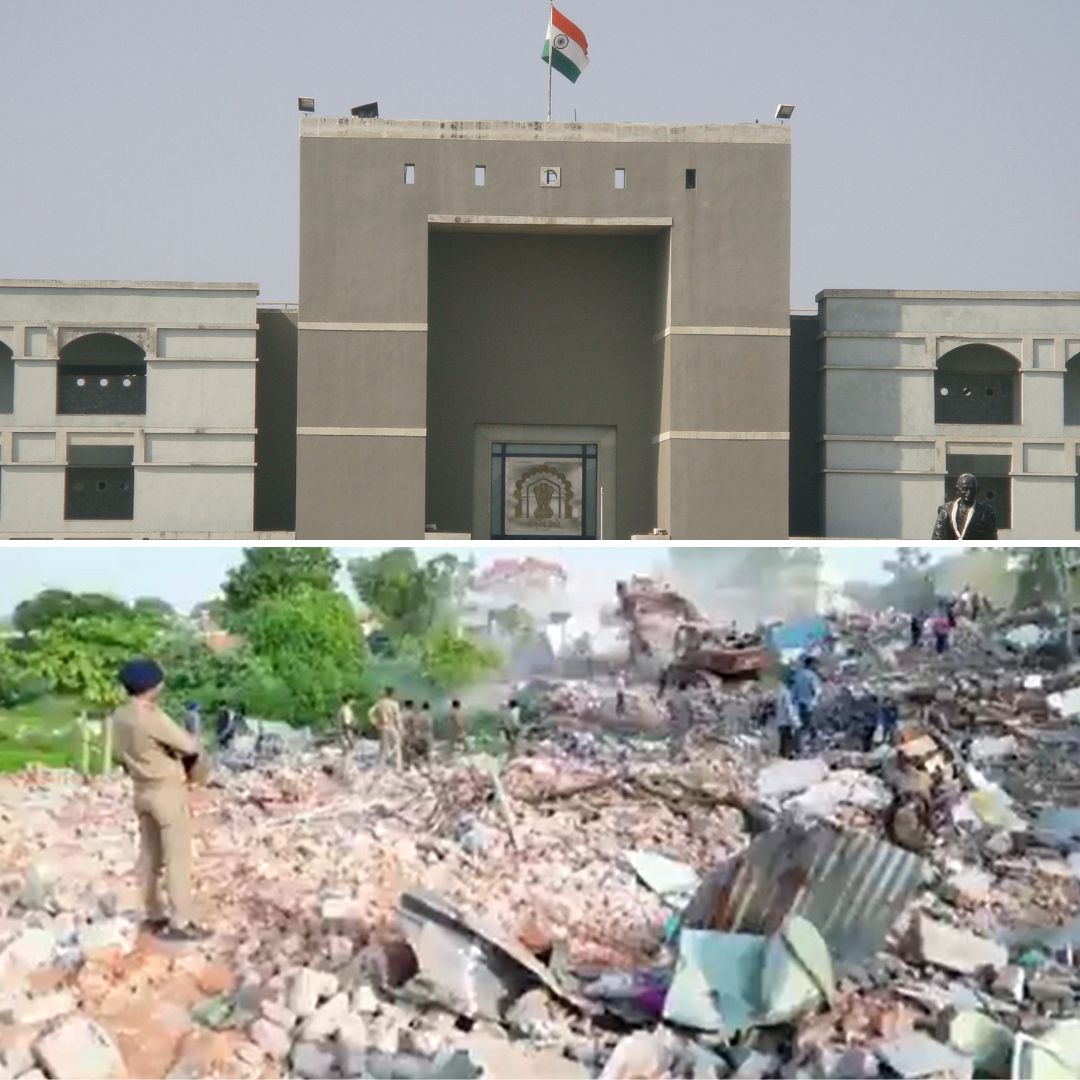Between April and May 2025, the Gujarat government demolished over 8,000 homes in Siasat Nagar, near Chandola Lake in Ahmedabad, citing national security and public safety concerns linked to intelligence following the Pahalgam terror attack.
The operation displaced thousands of families, many of whom possess valid Indian identity documents, sparking widespread allegations of inadequate notice and lack of rehabilitation.
Despite petitions and protests by residents and human rights groups, the Gujarat High Court upheld the government’s action, prioritising security over procedural safeguards. The incident has ignited a debate on balancing national security with human rights and due process.
Security Concerns Trigger Massive Demolition Drive
The demolition operation in Siasat Nagar was conducted in two phases, targeting what the government described as illegal encroachments by suspected Bangladeshi immigrants. Officials detained between 1,200 and 1,500 people during the operation, but subsequent verification revealed that nearly 90% were Indian citizens holding valid Aadhaar cards, voter IDs, and ration cards.
The government justified the demolitions by citing “sensitive inputs” received after the Pahalgam terror attack, claiming the encroachments posed a direct threat to public order, safety, and national security.
Local authorities used loudspeakers to announce evacuation orders only days before the bulldozers arrived, leaving many residents scrambling to salvage belongings and find shelter. Moinubhai, a daily wage worker and longtime resident, lamented, “We have lived here for over 50 years. Our homes were destroyed without any proper notice or chance to prepare.”
Legal Battles and Humanitarian Fallout
The Gujarat High Court rejected petitions seeking to halt the demolitions, accepting the government’s argument that the operation was an exceptional security measure rather than a routine eviction. Advocate General Kamal Trivedi emphasised, “Public safety and national security are paramount.
The government acted on credible intelligence to protect citizens.” However, legal experts and human rights activists criticised the lack of due process, noting that Supreme Court guidelines require proper notice and rehabilitation before eviction. Anand Yagnik, representing affected residents, argued, “Many families with valid Indian documents were displaced overnight, violating their fundamental rights.”
Human rights organisations have called for immediate government intervention to provide adequate rehabilitation and compensation, warning of a growing humanitarian crisis as displaced families struggle to find affordable housing and basic necessities.
The Logical Indian’s Perspective
While safeguarding national security is undeniably crucial, The Logical Indian believes that it must not come at the expense of empathy, justice, and the dignity of vulnerable communities. The scale and speed of the demolitions, coupled with the apparent disregard for due process and rehabilitation, highlight systemic challenges in how security concerns are addressed.
We urge the government to adopt transparent verification processes, ensure fair treatment of all residents regardless of background, and provide humane rehabilitation support. True security is not only about protecting borders but also about upholding the rights and dignity of every citizen.
How can authorities better balance national security imperatives with the fundamental rights of marginalised communities?












